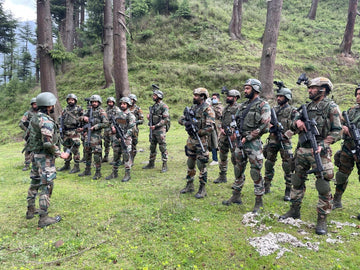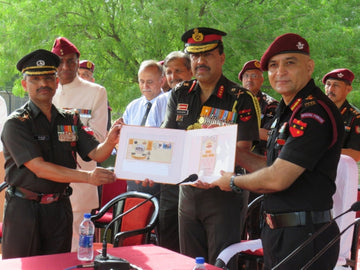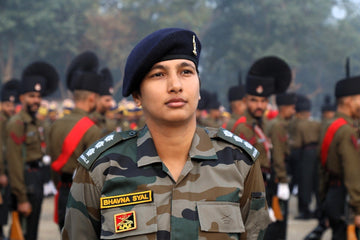Becoming an Indian Police Service (IPS) officer is one of the most prestigious career paths for individuals who aspire to serve the nation and make a significant impact on society. The journey towards this esteemed position is often characterized by rigorous preparation, unwavering determination, and the ability to navigate through a highly competitive selection process. The Civil Services Examination (CSE), conducted by the Union Public Service Commission (UPSC), is the gateway to this elite cadre. This step-by-step guide aims to demystify the process of becoming an IPS officer and provide aspiring candidates with an actionable roadmap to achieve their dreams.
Historical Context
The Indian Police Service has historical roots that trace back to British colonial rule, where it served primarily as an instrument of control over the Indian populace. However, post-Independence in 1947, the IPS evolved into a critical arm of the civil service, focusing on upholding law and order, preventing crime, and serving the community. Over the years, the role of IPS officers has expanded, incorporating responsibilities such as contributing to internal security, counter-terrorism, and disaster management. The evolution of this service reflects India's growing complexities in governance, security challenges, and societal needs.
Step 1: Meet the Eligibility Criteria
To embark on this journey, candidates must first ensure they meet the following eligibility criteria:
Nationality
Candidates must hold Indian citizenship. This is a non-negotiable criterion that emphasizes the need for a strong connection to the nation.
Age Limit
The age requirements vary based on the category:
-
General/ EWS: Minimum age of 21 years; maximum age of 32 years.
-
OBC: Maximum age of 35 years (with relaxations).
-
SC/ST: Maximum age of 37 years (with relaxations).
-
Disabled Defence Service personnel: Up to 42 years.
Educational Qualification
A candidate must hold a graduate degree from a recognized university. This broad criterion allows individuals from diverse academic backgrounds to pursue a career in policing.
Number of Attempts
Candidates must also be aware of the number of attempts permitted:
-
General/EWS candidates: Up to 6 attempts.
-
OBC candidates: Up to 9 attempts.
-
SC/ST candidates: Unlimited attempts until the maximum age limit is reached.
Physical Standards
Candidates must also meet the prescribed physical standards set by the UPSC. Minimum height, vision, and other requirements depend on the individual’s gender and category, ensuring that only those physically capable of handling the rigorous demands of policing are considered for selection.
Step 2: Apply for the UPSC CSE
The application process is launched each year, with notifications typically released by the UPSC in February. Here’s how to navigate this crucial step:
-
Registration: Candidates must create an account on the UPSC official website, where they can complete the online application form.
-
Filling Out the Form: Personal, academic, and other relevant details must be provided accurately.
-
Document Submission: Relevant documents and certificates confirming eligibility criteria and educational qualifications must be uploaded.
-
Payment of Fees: The application fee varies by category (General/OBC: ₹100; SC/ST/PH/Female: exempted).
-
Final Submission: Candidates must ensure that they double-check all details before submission, as applications with inaccuracies may lead to disqualification.
Step 3: Clear the Preliminary Exam
The preliminary examination is the first major hurdle in the journey to becoming an IPS officer. Understanding the structure and approach to this stage is vital for success:
Exam Structure
-
General Studies Paper I: This paper tests general awareness, current events, history, geography, polity, economy, environment, and general science.
-
General Studies Paper II (CSAT): This is a qualifying paper that assesses logical reasoning, comprehension, interpersonal skills, and decision-making ability. A minimum of 33.33% is required to qualify this paper.
Both papers carry a maximum of 200 marks, but only the General Studies Paper I is considered for merit.
Preparation Tips
-
Syllabus Familiarization: Thoroughly understand the syllabus for both papers.
-
Current Affairs: Regularly read newspapers and magazines to stay updated on national and international events.
-
Mock Tests: Take as many mock tests as possible to gauge readiness and improve timing.
-
Strategic Study Plan: Create a balanced study plan that allocates time for both papers.
Step 4: Appear for the Main Exam
Candidates who successfully clear the preliminary exam are then eligible to sit for the Main Exam, which is significantly more intensive and subjective.
Exam Structure
The Main Exam comprises nine papers:
-
Paper A: Indian Language (qualifying) – 300 marks
-
Paper B: English (qualifying) – 300 marks
-
Paper I: Essay – 250 marks
-
Papers II-V: General Studies I-IV – 250 marks each
-
Papers VI-VII: Optional Subject Papers – 250 marks each
Preparation Strategies
-
Deep Study of Subjects: Engage with subjects in greater depth, especially for General Studies and optional subjects.
-
Essay Writing Practice: Develop strong essay writing skills, focusing on structure, clarity, and concise arguments.
-
Regular Revisions: Regular revision of topics is crucial to ensure retention of information.
Step 5: Clear the Main Exam
Unlike the preliminary exam, the marks in the Main Exam are crucial in determining the final selection.
Evaluation Process
- Only candidates who score above the threshold are called for the next stage—the Personality Test.
- The Main Exam serves as a comprehensive assessment of candidates’ subject knowledge, analytical abilities, and writing skills.
Step 6: Appear for the Personality Test (Interview)
The personality test is the final stage of the selection process and evaluates a candidate’s overall personality, suitability for the IPS, and interpersonal skills.
Test Structure
-
Interview Panel: A panel typically consisting of former IPS officers and subject matter experts.
-
Marks: The interview carries 275 marks.
Preparation Techniques
-
Mock Interviews: Engage in mock interviews to enhance communication skills and boost confidence.
-
Personality Development: Work on confident body language and articulate responses, focusing on clarity and depth.
-
Current Affairs Knowledge: Being well-versed in current affairs can significantly aid in discussions during the interview.
Step 7: Allocation to IPS
Upon clearing all stages of the examination, candidates are ranked and allocated to various services according to their preferences and scores.
Ranking and Allocation
- Higher scores in the final merit list improve chances of being allocated to the IPS.
- Candidates can indicate preferences for their postings, but final allocations depend on overall performance and availability of positions.
Additional Information
Training Period
Once candidates are allocated to the IPS, they undergo rigorous training at the Sardar Vallabhbhai Patel National Police Academy (SVPNPA) in Hyderabad. The training encompasses various aspects of policing, law enforcement, leadership, and operations.
Initial Posting
Upon completing training, IPS officers are typically posted as Assistant Superintendent of Police (ASP) in various districts. This initial role provides hands-on experience and is critical to understanding the ground realities of policing.
Challenges and Solutions
While the path to becoming an IPS officer is rewarding, it is not without challenges. Here are some common hurdles along with potential solutions:
High Competition
Challenge: The Civil Services Examination attracts a large number of applicants, making the competition fierce.
Solution: Focus on a strategic preparation plan, leverage study materials from resources like SSBCrack and SSBCrackExams, and participate in discussion groups for collective understanding.
Balancing Preparation with Other Commitments
Challenge: Many candidates have jobs or academic commitments complicating their preparation process.
Solution: Develop a structured timetable that allocates specific hours for study, while also maintaining a healthy work-life balance.
Emotional Toll of Failure
Challenge: Many candidates face emotional distress upon not clearing the exams in their first attempts.
Solution: Consider mental well-being a priority. Engage in mindfulness practices, stay connected with fellow aspirants, and consider professional counseling if needed.
Future Trends and Predictions
As society evolves, so do the demands on police services. There are several emerging trends that have already begun to shape the future of the IPS.
Technology Integration
Policing is becoming increasingly technology-driven, with advances in data analysis, surveillance, and communication revolutionizing crime prevention and response.
Community Policing Approach
There is a growing emphasis on community policing, where officers engage proactively with communities to build trust and cooperation. This approach can enhance the effectiveness of law enforcement.
Conclusion
The journey to becoming an IPS officer is not just a pursuit of a career; it’s a commitment to serving society and upholding the law. This step-by-step guide outlines a pathway filled with challenges and opportunities, requiring determination, strategic preparation, and resilience. For aspiring candidates, understanding the intricacies of the Civil Services Examination is essential, as is the preparation for physical, emotional, and intellectual demands.
By embracing this journey with clarity and purpose, candidates can turn their aspirations into reality and embark on a fulfilling career dedicated to public service. Remember, the road is long, but the rewards of serving as an IPS officer are boundless and deeply rewarding. For those ready to take the plunge, resources from SSBCrack and SSBCrackExams—including books, online courses, and eBooks—can provide invaluable support throughout the preparation journey.





